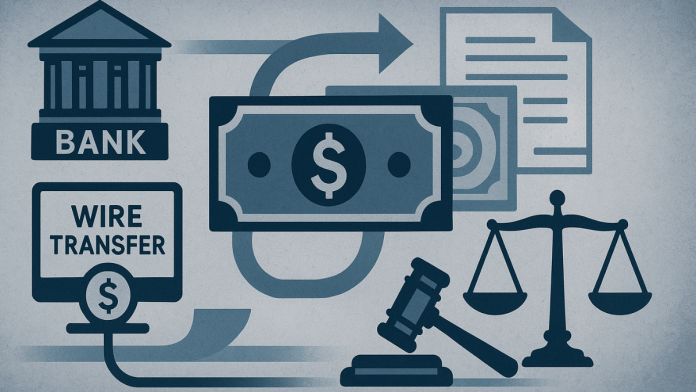Pratikbhai Patel, a 32-year-old man from Tampa, has been sentenced by U.S. District Judge Thomas P. Barber to three years and five months in federal prison after being found guilty in two separate financial crime cases. Along with his prison term, Patel has been ordered to pay more than $650,000 in restitution and forfeiture obligations.
Court records show that Patel pleaded guilty earlier this year in two different cases. The first plea was made in March 2025 for conspiring to commit money laundering. The second plea came in April 2025 for running an unlicensed money transmitting business.
As part of the sentence, Patel will serve his time in federal prison and is also responsible for paying back a significant amount of money gained through his illegal actions. Authorities described his activities as deliberate attempts to exploit vulnerable victims for personal gain.
The First Case: Call Center Fraud Scheme
According to investigators, Patel’s criminal activity started in 2018. From July through October of that year, he worked as a “runner” for a call center fraud operation based overseas. In this scam, callers pretended to be law enforcement officers. They threatened people with arrest, lawsuits, or other serious consequences unless money was sent right away.
Dwayne Anderson admits to defrauding American woman of more than $181,000
Victims, often caught off guard and scared, transferred funds to bank accounts controlled by conspirators. Patel then received these funds into his business account. To avoid disputes or reversals from the victims’ banks, he quickly withdrew the money. After pulling out the cash, he passed it on to another member of the conspiracy.
This part of the scheme allowed fraudsters to move large amounts of money while staying hidden. Investigators say Patel’s role was critical in helping the operation succeed, even though it only lasted a few months. His actions caused financial harm to people who were already vulnerable and fearful.
The Second Case: Illegal Money Transfers Through Businesses
The second case took place over a longer period, from September 2020 until February 2023. During this time, Patel used two businesses, Tampa Smoke Shop LLC and Mamba Distro LLC, as fronts for his activities.
Court documents revealed that he made same-day cash deposits into these business accounts. Afterward, the money was wired to other entities that had no legitimate business purpose. Authorities found that Patel completed 235 wire transfers to 115 different recipients. For his role, he collected a fee ranging from 1% to 1.5% of the total funds moved.
Ahmednaji Maalim Aftin Sheikh indicted in $40 million Feeding Our Future fraud scheme
Despite handling large sums of money through these transfers, Patel was never licensed by the State of Florida to run a money transmitting business. Running such an operation without proper authorization is a federal crime, especially when it involves suspicious or unexplained financial activity.
Investigators stressed that these actions helped move large amounts of cash in a way that could hide the true source of the money. This type of laundering is often used by criminal organizations to disguise illegal profits.
“This defendant preyed on vulnerable victims to satisfy his greed,” said Special Agent in Charge Ron Loecker of the IRS Criminal Investigation Tampa Field Office. “This prosecution should serve as a warning to those intent on exploiting others through financial crimes.”
Both cases were investigated by the Internal Revenue Service – Criminal Investigation and the U.S. Treasury Inspector General for Tax Administration. The prosecutions were handled by Assistant United States Attorneys Suzanne Huyler and Dan Baeza under the Organized Crime Drug Enforcement Task Force, which is designed to take down large-scale criminal networks.


